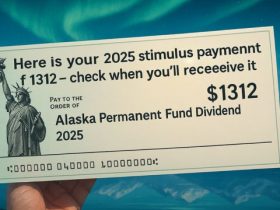WPBN: Maintaining your Free Application for Federal Student Aid (FAFSA) is crucial if you want to qualify for student loan forgiveness. Even though the FAFSA is only needed once a year, it has a big influence on your eligibility for financial aid and maybe for forgiveness programs.
Let’s examine the importance of timely filing and how it relates to chances for loan forgiveness.
To continue to be eligible for federal student aid, state grants, or school-based help, you must submit the FAFSA each year you are enrolled in classes.
It’s crucial to note those dates on your calendar because deadlines differ depending on institutional, state, and federal regulations. According to the U.S. Department of Education, “Applying early maximizes your aid eligibility.”
For example:
- The academic year’s June 30 is the federal FAFSA deadline (for example, June 30, 2025 for the 2024–2025 year).
- State Deadlines: These differ, with some states offering better help packages with earlier “priority” dates.
- School Deadlines: These are usually the earliest, occurring many months prior to the start of the school year.
We’re live! 🙌
The 2025–26 FAFSA® form is now available. Head to https://t.co/wdDmg7cr0I to start your form today. pic.twitter.com/CJxj1kO8rc
— Federal Student Aid (@FAFSA) November 21, 2024
You can maintain your eligibility for programs like Teacher Loan Forgiveness and Public Service Loan Forgiveness (PSLF), which require you to continue participating in qualifying loan programs while repaying your debt, by adhering to certain deadlines.
Are you eligible for SNAP in Florida? Check eligibility for benefits
FAFSA and Loan Forgiveness Programs
Borrowers must make 120 qualifying payments while working full-time in public service in order to qualify for programs like PSLF.
You must be enrolled in a qualifying federal repayment plan in order for this to occur, and obtaining aid such as Direct Loans frequently requires submitting your FAFSA during the academic year.
Recent changes to the PSLF program, like changes to the payment count, emphasize how crucial it is to keep on course. Borrowers having specific loans (such as Federal Family Education Loans) will no longer be eligible if they do not combine into a Direct Loan by June 30, 2024.
Eligibility for such forgiveness changes may be delayed or eliminated if FAFSA deadlines are missed.
If you’ve recently defaulted on your student loans, here are some options that can help! https://t.co/VwdpNWPbMV pic.twitter.com/ZNEGNqIZaN
— Federal Student Aid (@FAFSA) December 4, 2024
OFFICIAL: Texas Food Stamps Paydays: December SNAP Payment Schedule Before 2025
Advice on how to remain ahead?
1. Set deadlines: Utilize electronic reminders for school, state, and federal deadlines.
2. Collect documents in advance: The process is sped up by preparing financial information and tax returns.
3. List all schools: To prevent missing out on opportunities, add every possible school, even if you aren’t sure yet.
4. Carefully go over your FAFSA: Steer clear of mistakes that can lead to delays.
To put it briefly, completing the FAFSA each year is essential for both guaranteeing your route toward student loan forgiveness and receiving immediate aid.
One financial aid specialist states that “staying proactive with FAFSA ensures you’re not leaving money-or opportunities-on the table.”











Leave a Reply